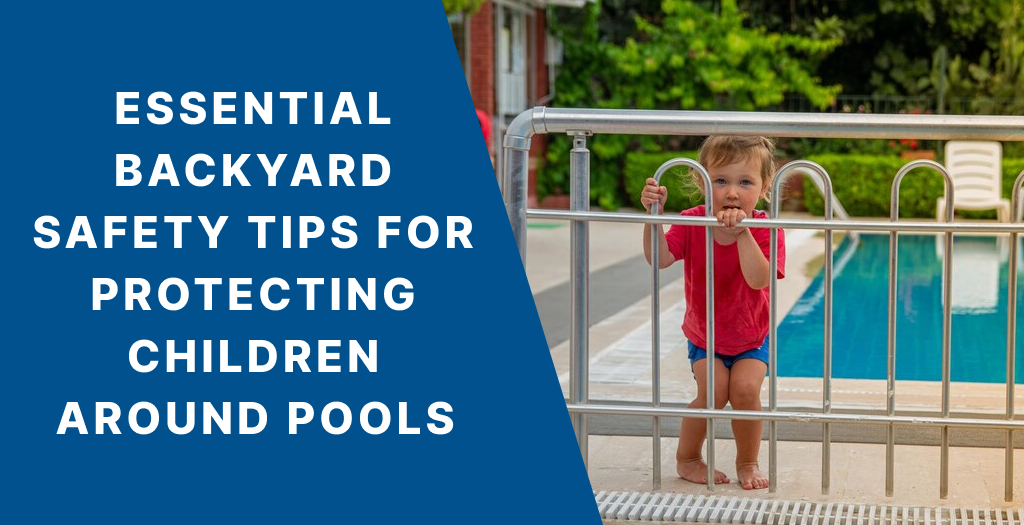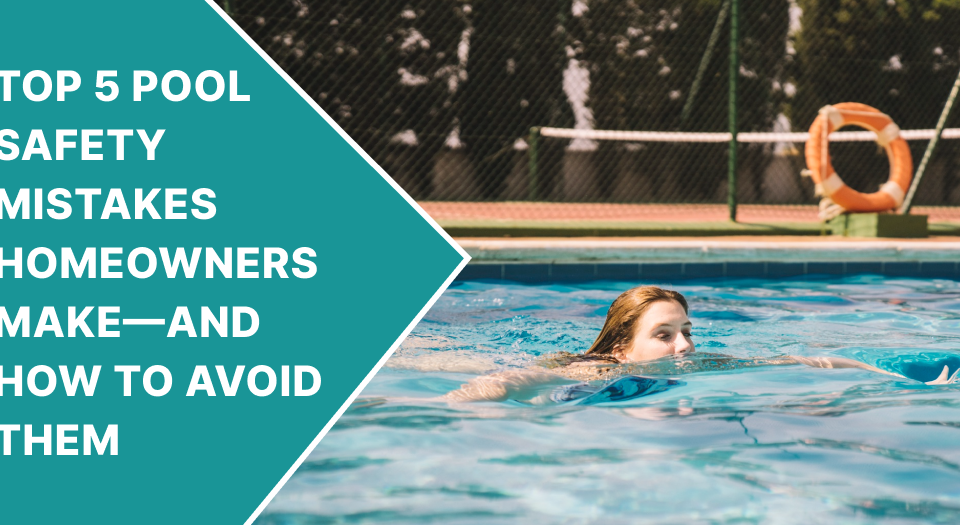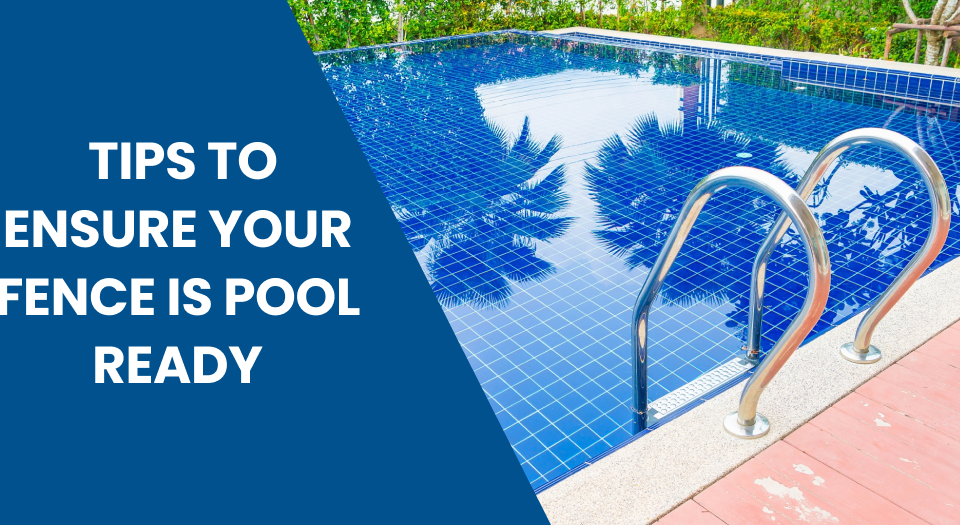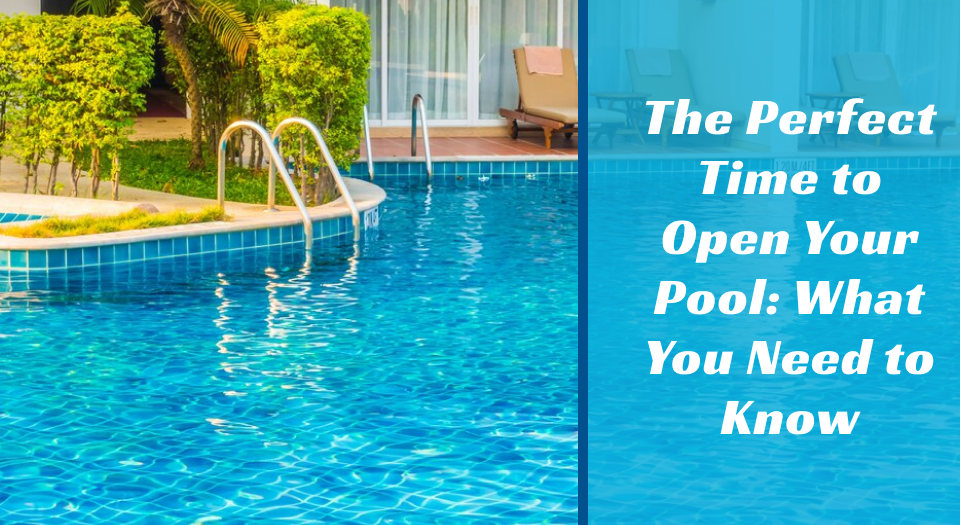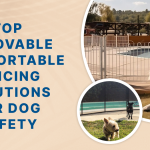
Top Removable and Portable Fencing Solutions for Dog Safety
September 23, 2024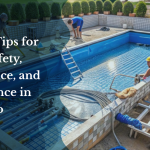
Essential Tips for Pool Safety, Maintenance, and Compliance in Ohio
October 15, 2024Swimming pools are more pleasing and comforting, particularly during the summer season. However, if you have children at home, pool safety is an area you must consider very carefully. Kids are playful and like water, so they go near water even when alone. Thus, it is essential for you to be vigilant all the time to prevent mishaps, which could occur in a few seconds if one is near a pool.
In today’s blog, we will discuss five core issues that can help parents ensure their child’s safety in backyards with pools.
1. Install a Pool Fence
A pool fence is one of the most efficient ways to protect children from drowning or falling into the pools. The fence also serves as a protective wall that keeps young kids away from the pool when adults are not supervising. Ideally, the fence should be more than four feet tall and not have a space where the child might get stuck. You should also ensure that the gate has a self-latching and self-closing system. This way, even if you forget to close it, it will close automatically.
A pool fence is one of the simplest things you can do to help avoid accidents. It ensures the pool area remains closed if no adults are in the house. Fencing is a basic requirement by safety organizations for all individuals who own pools. For the best facilities in the town, contact Poolfence with all your requirements.
2. Always Supervise Children
Swimming pool supervision is one of the most crucial pool safety tips. Therefore, even if a child is a good swimmer, they should not be allowed to swim alone in water. Always ensure to keep an eye on them.
To reduce accidents, whenever children play around the pool, choose an adult to monitor their activities as the “pool watcher.”
3. Teach Children to Swim
By training your kids on how to swim, there will be fewer accidents in the future. Classes can begin at a young age, and you can enroll your child in programs that educate them about safety around water. Any kind of water experience will help your child learn more. It will help them to be ready and learn how to swim.
If your child is a good swimmer, there is no need to remember a set of rules, but ensuring they know the rules is better. Inform them not to move or play around the pool area, never to dive, and never to come close to the pool drains. Knowing as much as possible about pool safety will ensure they enjoy themselves safely.
4. Use Pool Covers and Alarms
A pool cover can also make the environment safer, especially when children are around when the pool is not in use. A secure pool cover should provide the children with no access to the water. If you want protective covers, there are professional covers for these items, as a simple cover can be dangerous.
In addition, use pool alarms to notify you if someone is in the pool area. Such alarms can sense any activity on the water or when someone opens the gate. Alerts are the most helpful for parents who need an additional measure of safety for their children.
5. Keep Rescue Equipment Nearby
Each pool should have minimum rescue tools nearby in case of an emergency. These are a life ring, a reaching pole, and a first aid box. Also, pool owners should learn basic Cardiopulmonary Resuscitation techniques. Having the tools within reach is always good, as it would be useful in an emergency and save a life.
It is essential to ensure that rescue equipment is accessible and all family members know their location. In the case of an accident, acting can make a big difference.
6. Set Clear Pool Rules
Kids must know that there are set procedures for swimming in the pool. Establishing pool rules and ensuring that everybody adheres to them with no exceptions is best. Some rules to consider include:
- No swimming without an adult present.
- No running around the pool.
- No diving into shallow areas.
- No playing near the pool drains.
It is essential for children to understand why those rules are present. This will help reduce the overall incidences of any kind of mishaps.
7. Protect Pool Chemicals
Chemicals are essential to add to the pool water to maintain high hygiene standards; however, they are hazardous substances. It is always advisable to store pool chemicals in a locked cabinet where kids cannot access them. Also, ensure that you follow the particular instructions regarding how to use them and avoid causing spills.
Kids love playing and may not understand the hazards of pool chemicals. That is why you should keep them away from storage areas.
8. Maintain Proper Pool Maintenance
Swimming pool sanitizing means the water is safe for use and keeps the pool water clean. Daily pool inspection is essential for potential risks like uncovered drains, abrasive surfaces, or faulty appliances. Ensure that the water filtration system prevents water from frothing, which hinders the visibility of the swimmers.
Keeping your pool well-maintained reduces the risk of accidents and helps you spot potential problems before they become serious.
9. Limit Poolside Distractions
It is understandable how watching children in the pool can prove rather distracting. But even a moment’s distraction can put one in a risky position. Try not to use your phone, read, or indulge in conversations that distract you from the water.
10. Be Prepared for Emergencies
It is always wise to have as many safety nets as possible when something might go wrong, even with the proper preparation. There is a need for an emergency plan to avoid this. Inform any other adults living with you on how to perform CPR and basic first aid. Always have emergency contact numbers with you, and ensure that there is always a phone nearby in case of an emergency.
Knowing what to do in an emergency saves valuable time and lives.
Conclusion
The safety of children in the presence of water swimming pools is always a significant concern for parents. Thus, you must follow essential measures to achieve a safe backyard environment. These measures help you design an environment that lets your family utilize the pool as they wish while ensuring no mishap occurs.
Remember, supervision is key. When children are near the swimming pool, pay close attention to them and make sure you use covers and alarms. Be proactive at this time to make certain that your pool area is secure and ready for those fun swim times. You can contact Life Saver Poolfence to get the best quality poolfence for your backyard pool.
FAQs
- Why is a pool fence important for child safety?
A pool fence creates a barrier that stops children from entering the pool area unsupervised. It helps reduce the risk of accidents and ensures your child stays safe around the water.
- How can I make my pool safer for my kids?
You can install a pool fence, supervise your children, and use pool covers. Teaching kids how to swim and setting pool rules also helps keep them safe.
- What should I do in case of a pool emergency?
Stay calm and act fast. Always have rescue equipment nearby, know how to do CPR, and keep emergency contact numbers close to the pool area.

